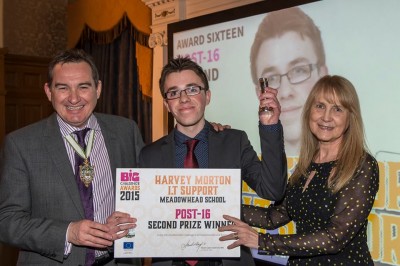Harvey Morton
On Wednesday 24th February 2016, I was delighted to be able to attend the February All-Party Parliamentary Group (APPG) Meeting for Youth Employment. Laura Smethhurst from the Department for Work and Pensions was the guest speaker at the meeting. Laura spoke in great detail about the Youth Obligation and how to support 18-21 year olds going into work-related training and employment, her presentation started with some fascinating statistics about young people in employment.
The Labour Market Statistics (February 2016) showed that 86% of 16-24s are in full time study or work, this is the highest proportion on record – this shows that young people have more opportunities today than ever before, but there is still a long way to go. Other statistics showed that 14% of all young people (16-24) have left full-time education and are not working, again this is the lowest figure on record – suggesting that opportunity is motivating young people to put themselves out there and get employed. We then learnt that there is often a mismatch between employers expectations of young people during the recruitment process and young people’s understanding of what is expected of them. For instance, employers have reported that critical factors in recruitment decisions are: evidence of work experience (66%), vocational qualifications (50%) and academic qualifications at just 49%.
I found these figures to be very surprising because from my own experience, I was always told at school that academic qualifications are just as important or if not more important than work experience or vocational qualifications. However, I myself have always argued that work experience and your achievements outside the classroom are invaluable when looking for employment – it’s fantastic to see that employers support this too.
Laura later presented us with a figure that backs the previous point up, stating that 76% of employers say lack of work experience is the reason young people are unprepared for work, proving that schools need to put a greater focus on careers advice and preparing young people for employment as opposed to of focusing purely on exams. I feel that if schools and other educational institutions can get this balance right, then the number of young people who are unemployed is likely to decrease significantly.
Towards the end of Laura’s presentation, we discovered the Youth Obligation : Claimant Journey in Universal Credit Plan, a program whereby work coaches tailor interventions to the needs of an individual to address a variety of barriers to work. This starts with a mandatory intensive activity programme and referral to basic maths and English training then by the time that the young person is 1-6 months into the plan, they’ll get a weekly job search review and encouragement to apply for an apprenticeship alongside voluntary work experience amongst other benefits. By the end of the plan, the young person concerned is ultimately referred to a mandatory work placement or given some high quality skills training. I think that this plan is a fantastic idea and it could really benefit many young people in the future, the concept of a set plan and professional mentoring is likely to increase the chances of the young person being in long-term employment after the plan is complete and you can’t get any better than that!
Overall, I thought that the APPG for Youth Employment February Meeting was really positive and I had so much to think about and consider once the meeting had finished. I didn’t contribute anything to the meeting myself, although there was some interesting points made by other attendees at the meeting. For instance, one attendee pointed out that a young person with special needs may find the Youth Obligation : Claimant Journey in Universal Credit Plan difficult to stick to without specialist support, however Laura stated that if a young person with special needs did want to take part in the proposed programme, they would be paired with a coach who has experience in working in this area. As a Youth Employment UK (YEUK) Ambassador I think that moving forward, it’s important to try and encourage more MPs and YEUK Ambassadors to attend future APPG meetings so that we can continue to tackle youth employment issues together in the future. If you get a spare moment this week, please visit: http://www.parliament.uk/mps-lords-and-offices/mps/ and write to your local MP, asking them to attend the next meeting!
To find our more about the APPG for youth employment visit:
http://www.appgyouthemployment.org/







